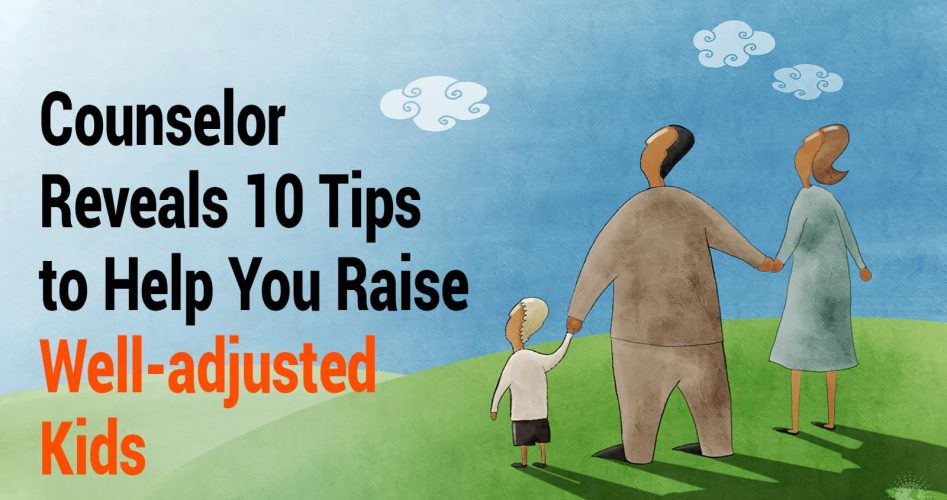Are your kids’ closets a jumbled mess? That likely scenario is not at all surprising!
No one is quite as disorganized as a child! With a little understanding of the importance of keeping things tidy, kids can create quite a mess and leave a trail of havoc wherever they go. It can be difficult for parents to keep up – and even more difficult for those kids to find what they need later!
That’s why it’s so vital to teach children to start being organized as young as possible. This way, organizing habits will come naturally to them, and they’ll learn how to keep things neat and orderly as they grow up. But with all the things kids have, how can everything be stored correctly? Here’s how pros reveal six simple tips to help you organize your kids’ closets!
1. Hang Things Up
Hanging things up is a simple and easy way to keep things off the floor. All you have to do is make sure your children have enough hooks and hangers, and you’ll naturally have things organized in some form! Morevoer, you will help decrease morning-time stress!
Here are several easy tasks you can start with:
· Figure Out How Hanging Things Works
Help your children create a system for their clothes. For example, their clothes can be organized by color and category. This way, they can grab and put away their clothes quickly later!
· Use Doubler Rods
Having two rods in your child’s closet not only increases the hanging space in the closet, but they also allow smaller children to put away their clothes with ease too. This will enable them to practice organizing their closet by themselves.
· Try Using Hooks
Putting on your child’s closet provides more organizational options for your child. They can use these hooks to hang bags, scarves, jackets, or even jewelry – which helps keep their things off the floor and their room free of clutter.
· Invest In Good Hangers
It may seem strange, but getting the right kind of hangers can make storage easier for your child’s closet. Slimline hangers take up less space than ordinary hangers, allowing you to squeeze in more clothes onto a rack. Some of them come with non-slip designs as well, ensuring that clothes won’t slide off the hangers while in the closet.
2. Figure Out How A Good Closet Works
To store things well, you first have to invest in a functional closet. Not just in terms of build quality, but also in terms of how usable it is from your child’s point-of-view. After all, it is much easier to encourage cleanliness and orderliness if the act of storing and retrieving their belongings is a positive experience!
· Make Sure Everything Is Accessible
Your child needs to have a closet that they can use to its fullest. This means making sure that baskets are within reach, and things can be easily seen and retrieved from the open shelves. This lowered height makes it easier for your child to maintain and organize their own space.
· Invest In A Working Closet System
Not all closets are designed the same. Look for one that has the right number and arrangement of shelves, cubbies, and drawers your child needs.
· Designate Different Spaces For Different Things
Organizing is easier for your child if they know where things should go. Help your child decide on a “home” for their belongings so that they are encouraged to return the appropriate items to their respective shelves. For example, their shoes’ home can be in a drawer, and underwear can have their home on a specific shelf!
3. Make Things Convenient
No matter how old you are, cleaning can come across as a menial chore and a drag. For children, this is understandably even worse – which can explain why they may struggle to keep their rooms and closets clean. Here are a few things you can do to help them:
· Have A Basket Or Bin For Everything
Using a mix of bins and baskets allows you to contain and store things that won’t usually fit onto a shelf or into a drawer. It also gives your children someplace to put the bulkier stuff they love, like puzzles, books, stuffed toys, or even shoes.
· Make Labels
Teaching your child how to label things can help them keep track of their belongings and their respective shelves. You can then teach them to match items to their labeled shelves for easy cleanup.
· Coordinate By Color
Color-coordination can turn fixing up the closet into a fun and easy task for your child. Have them put their toys in a basket of the same color, or place their books back onto a shelf with books of similar color.
· Use Closet Dividers
Closet dividers help divide up a closet into more spaces. This allows your child to get specific with their storage, and control the size of their shelves per their needs or wants!
4. Unique Storage Options
Typical storage methods may be just what you need for your children. This offers them more options to keep things clean, and may make organizing their closet and space a more exciting experience!
Here are a few helpful hints you can try for your children:
· Go For Hidden Storage
There’s nothing more exciting for children than a hidden drawer or bin. This can encourage them to put their things away while also doubling the amount of storage space for them.
· DIY A Hanging Pegboard
A pegboard wall with hooks offers both you and your child more versatility when it comes to storage options. You can use it to store books, knick-knacks, and various miscellaneous items – whatever organizational space you need, you can configure a pegboard for the task.
· Don’t Let The Door Go to Waste
You can quickly put up a set of hooks or a hanging organizer for additional storage space. This not only utilizes an unusual space that would otherwise go to waste, but it also allows your child to easily see and store their belongings.
· Bring Write Kitchen Shelves In
Kitchen shelves don’t have to be reserved for just your kitchen. You can also utilize them for your child’s storage, allowing you to put their belongings somewhere that’s visible. This not only leaves everything in sight and easy reach for your child but also offers plenty of vertical storage space as well.
· Mix Laundry Baskets With Shelves
Laundry baskets don’t have to be just for laundry. You can also use them as a shelf of sorts, and have your child use it as a storage spot for all kinds of miscellaneous items they may have.
5. Make Cleanup Easy
The simplest way to encourage your children to clean up after themselves is to make the task easy! It is often easy to forget just how difficult it can be for a child to remember to clean up after themselves. Lowering the energy and mental requirements for your children solves that issue, and it can be quickly done by:
· Set Up A Bin Or Two For Toys
Putting down some stackable storage bins for your children creates an easily accessible place for your children’s toys. You can help your child label said containers so that they know what goes where, which further incentivizes them to put things back “home”.
· Prepare A Laundry Basket
Give your children a place to put their dirty laundry. A basket with handles will not only create a logical place for dirty clothes but can also be carried by your child to the laundry room when full.
· Have An Open Bin Ready For Quick Cleanup
Simply have a large, open bin for bulky items. Have your child toss everything into it before bedtime – pillows, stuffed toys, throw blankets, etc. No questions asked.
6. When Losing Motivation, Remember The Benefits
No matter how much work you put in, it bears remembering that this is essentially an ongoing lesson you will have to teach them for the entirety of their childhood. That can seem like a long time on a bad day, and you might find yourself in despair instead!
It’s best to cling on tight to positive thinking, however. Research tells us that with enough time, the organizational skills you teach them scale up to other aspects of their life as well. For example, they become better at:
· Learning To Follow Directions
It may seem simple, but trying to follow directions is a lot harder for children than you might think. This is because it requires a child to be capable of focusing on the task at hand and mentally constructing a course of action for it. These two things need mental organizational and planning skills – something a child can learn from organizing their closet.
· Easier Location
With everything placed away from where they should be, you’ll find that it’s easier for both you and your child to find things.
· Gaining Math Skills
Organizational skills find their place in math, a subject that is also highly organized. So it should come as no surprise that studies have pointed out the relationship between a child’s organizational skills and their mathematical academic achievement. As such, teaching your children how to organize their closet – and by extension, teaching them organizational skills – may have a positive effect on their studies later on.
· Learning Confidence
The task of rewarding your child for cleaning up their closet may also be what helps build their confidence. Research shows that being specific about praise helps boost their child in the praised area. This means that regularly rewarding and praising your child for organizing their toys and clothing will help them increase their sense of self, their capacity for positive thinking, and their ability to organize!
· Gaining Literacy
When a child reads a book or writes a story, they have to keep track of several things at once. For example, they’d have to keep track of plot, story concept, characters, and their relationships. This actually all requires organizational skills that they can, fortunately, learn through visually organizing their space, as research has shown.
Final Thoughts On Following These Simple Tips To Help You Organize Your Kids’ Closets
No one expects, wants, or needs children to be the perfect depictions of a filing cabinet. We all know full well that kids will be kids! Being young involves being a little messy. But that doesn’t mean that children can’t begin to learn how to keep things tidy, and what better way to start teaching organization than through their closets?






















